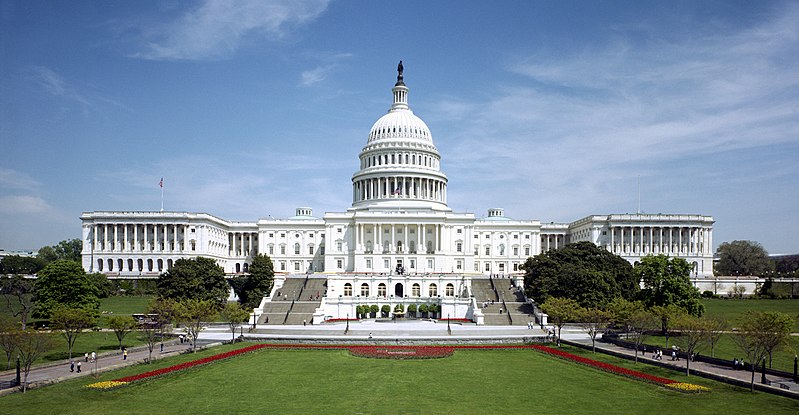Democrats secured a majority in the House of Representatives but lost seats in the Senate. Bolstered by several early upsets, Democrats ended the night with 219 House seats, a narrow majority, with 412 House races called. In the Senate, meanwhile, Republicans easily retained their majority as Republican challengers unseated vulnerable Democratic senators throughout the night.
In the House, Democrats gained 26 seats and control of the lower chamber of Congress. Key upsets in congressional districts throughout the Midwest and Eastern Coast against Republican incumbents propelled the party to capture a majority in the House that will likely grow as more congressional races are called.
In the Senate, however, key Democratic incumbents were felled by Republican challengers. Sens. Heidi Heitkamp (D-ND), Joe Donnelly (D-IN) and Claire McCaskill (D-MO) lost their bids for reelection while Sen. Dean Heller (R-NV) was the only Republican senator who lost to a Democratic challenger during election night.
Republicans, who ended election day with 51 seats in the Senate, are also expected to have their margin of victory grow further.
Several prominent Democratic candidates failed to unseat Republican senators. Former Texas Representative and liberal political darling Beto O’Rourke failed to oust Sen. Ted Cruz (R-TX) in one of the most watched races in the country while Phil Bredesen lost to incumbent Sen. Marsha Blackburn by nearly 10%, despite an endorsement from Taylor Swift.
Democrats won control of seven governor’s mansions but still ended the night with fewer governorships than Republicans. Democrats now hold 23 governorships while Republicans hold 26.
Only the gubernatorial race in Georgia has remained uncalled. Democratic candidate Stacey Abrams has refused to concede in the race against Georgia Secretary of State Brian Kemp. Kemp, who, as secretary of state, is given the duty of maintaining fair elections, has been accused of suppressing turnout and disenfranchising minority voters who would likely support Abrams. While in the lead, Kemp is only barely above the 50% margin required to trigger a runoff election.
In the DMV, Democrats secured victories over incumbents in Virginia’s second, fifth and 10th congressional districts. Republican Rep. Barbara Comstock, who represented Virginia’s 10th, lost to Democratic challenger Jennifer Wexton in the first congressional race to be called of the night.
Both senators up for reelection in Maryland and Virginia, Sens. Ben Cardin (D-MD) and Tim Kaine (D-VA) won their races against Republican challengers.
In Maryland, Republican Governor Larry Hogan held off a challenge from former NAACP head Ben Jealous, who was supported by Bernie Sanders, in a state where both of its senators and six of its seven representatives are Democrats.
With control of the House, Democrats will likely impede the Republican legislative agenda as attention turns towards 2020 and the reelection of President Donald J. Trump. Nationally-recognized candidates like Andrew Gillum, Beto O’Rourke and Kris Kobach failed to win their elections while little-known candidates won surprise upsets throughout the night.
With Congress divided, bipartisan collaboration on legislative efforts seems more possible in the future as the government begins tackling key issues like health care, immigration, and gun control.
By Nicolas Greamo


































































